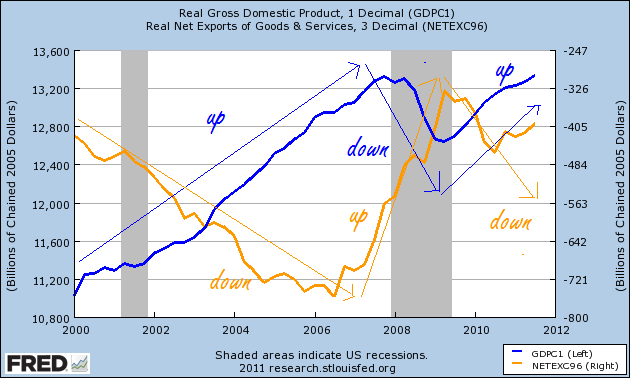- Thread starter
- #61
You state that “US exports are not as direly necessary to the world ” but they are of critical importance to foreign producers of goods that are destined or could be destined for USA’s domestic market.
What do you mean by “the real focus should be about domestic business, not just exporters”? USA’s imports and exports certainly do affect USA’s economy. Our trade deficit has caused our effective loss of some segments or entire USA industries.
Respectfully, Supposn
Typographical error. Message #56; my (Supposn’s) response to Antagone. My response should have been that you, (Antagone) stated “US exports are not as direly necessary to the world” but USA’s purchases of foreign goods, (aka USA imports) are of critical importance to foreign producers’ of goods.
Global trade is a “buyers’ market”; buyers being importers and sellers being exporters. Advantages are not given but must be taken. Because the USA does not take advantage of the fact that we’re net buyers, then it is the producers of USA’s imports that have the advantage over us.
Respectfully, Supposn
Last edited:

